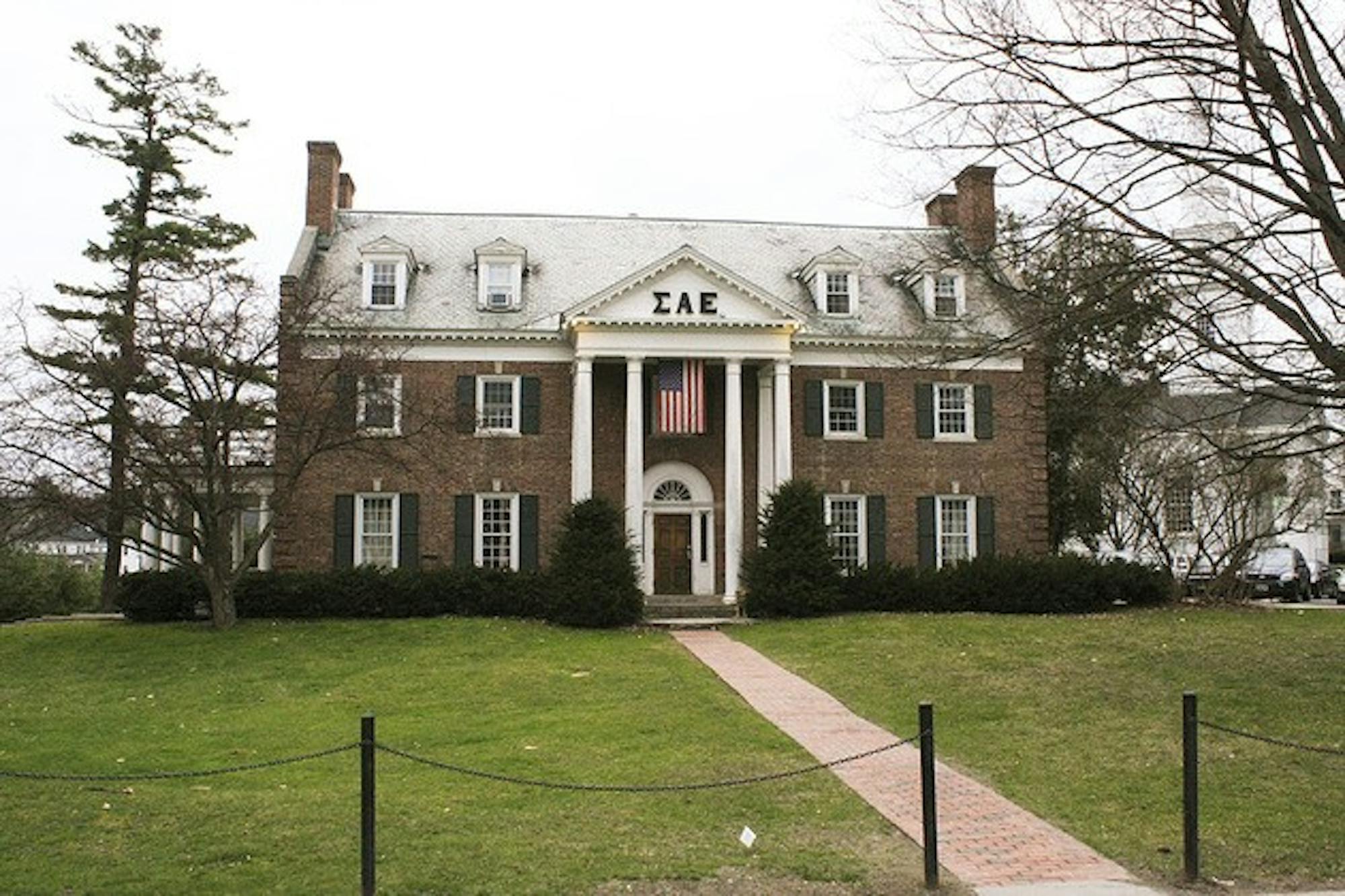The charges were withdrawn after SAE provided "physical evidence that proved specific claims by Lohse false," Mahoney said.
The news also coincides with the Wednesday publication of an article in Rolling Stone Magazine that highlights Lohse's experiences of hazing at SAE. Last week, College President Jim Yong Kim announced plans to form a College committee in order to address hazing at Dartmouth.
A member of SAE who found out the hazing charge against him had been dropped on Wednesday and wished to remain anonymous due to the sensitive nature of the subject said he was not surprised the charges had been dropped.
"In all honesty, I had been expecting it for a while," he said. "We stuck to the truth."
After the College gathered statements from members of SAE, the College had "no other choice" than to drop the charges, he said.
The SAE member said he was not pleased, however, that all charges against members and the organization were not dropped.
"I still don't know what I was alleged to have done," he said. "I had no [official] position. I was just a brother."
In accordance with policy, the College cannot comment on individual disciplinary cases, Director of Media Relations for the College Justin Anderson said in a statement to The Dartmouth.
"In all instances, and as a matter of principle, when a member of the community comes forward with sufficiently credible allegations of serious misconduct by any student or organization, those allegations are investigated under a fair and rigorous process by the Undergraduate Judicial Affairs Office," Anderson said. "Allegations may be modified or withdrawn as dictated by the evidence. This is a tried and trusted process that works."
The SAE member who wished to remain anonymous said he would like the College to provide SAE and the Greek community "the chance to show how influential they can be" and to enact positive change on campus.
On March 22, College President Jim Yong Kim informed the community of plans for a new committee designed to address the issues of hazing, underage drinking and sexual assault. The committee will be comprised of students, faculty and staff, and will "work in consultation with national experts to identify the most effective ways of tackling the problems ... in an evidence-based approach," Kim said in a campus-wide email.
Kim said the College has investigated all instances of hazing presented to administrators and will "continue to take appropriate measures" against students performing or participating in actions that constitute hazing. He said students must express their concerns "openly" and "engage constructively" with the College to address the hazing issue, which is marked by behavior that has "no place" in the Dartmouth community.
In an interview with The Dartmouth, Lohse said he disagreed with the College's decision to pursue charges against individual members of SAE.
"I'm happy and relieved for the 24 members of SAE that have supposedly had the charges dropped," Lohse said. "It's not like these people were my friends, it's not really about f*cking over the house or I would have been chomping at the bit about how I could get them."
Other students interviewed by The Dartmouth also said that they approved the dropping of charges.
Sapna Chemplavil '11 said the initial charges against SAE members seemed "more of a show" and the rescindment of these charges "seems very telling."
"It makes me wonder what they were based off in the first place," Chemplavil said.
Suzanne Kelson '12 said that a few individuals, rather than the organization as a whole, are responsible for hazing.
"Twenty-seven seems like a lot of people to be held accountable for a hazing incident," Kelson said.
Kelson said she thinks Greek life has a lot of potential but is "not a big fan" of the system in its current state because membership is based on paying dues or taking part in hazing.
Women and gender studies professor Michael Bronski, who was interviewed for the Rolling Stone article, said in an interview with The Dartmouth that he is most concerned about the "culture of lying" that the hazing culture fosters.
"Every Greek leader has denied that hazing ever, ever happens," he said. "They were all lying. [This is a] culture which many, many people seem to take part in. I think it's deadly and hurtful and extraordinarily detrimental."
Bronski also said the original charges made by the College were serious and that only a flawed system could make 27 charges and later discover that only three of them were accurate.
"There's something wrong with the entire process or something wrong with the people who are implementing the process," Bronski said.
Staff writer Leslie Ye contributed reporting to this article.




